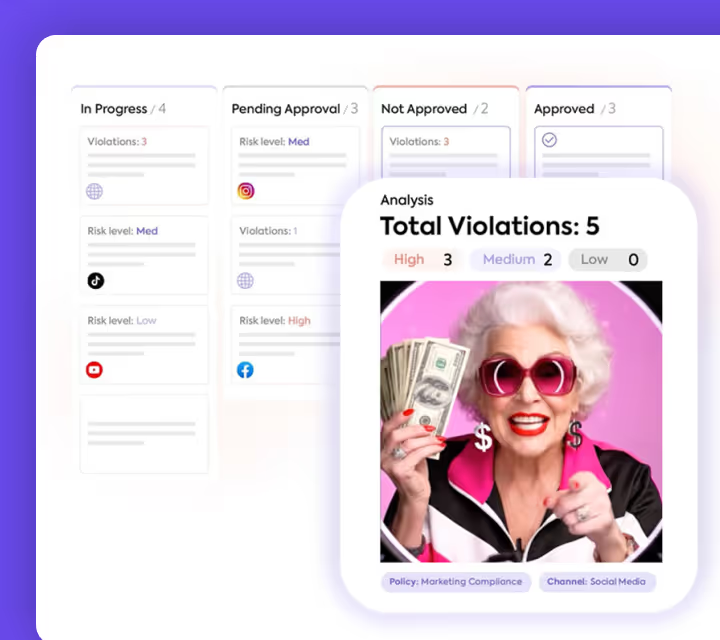Are your client communications fully FCA-compliant or could they be putting your firm at risk? For portfolio managers, every email, phone call, or meeting is more than just an exchange of information, it’s a potential regulatory checkpoint. To meet FCA compliance client communications requirements, you must align with COBS communications compliance, FCA rules, and MAR SMCR client comms rules while maintaining transparency, accuracy, and trust.
These requirements fall under financial conduct authority oversight and apply to regulated firms, including wholesale banks and financial services firms operating in UK financial services and financial markets.
This guide explains how to manage those regulatory rules with confidence, integrate FCA voice monitoring and communications capture into your workflow, and apply best practices tailored specifically to portfolio management teams.
Understanding FCA Compliant Client Communications
To guarantee your client communications meet FCA regulations, start with the golden rule: messages must be clear, fair, and not misleading.
The FCA’s Conduct of Business Sourcebook (COBS communications compliance) requires that all communications be suitable for their audience. That means tailoring language, tone, and technical detail to each client’s level of understanding while ensuring compliance policies and internal policies support record keeping and monitoring.
For example:
- Avoid financial jargon with retail clients; instead, use plain English to explain investment risks and benefits.
- Provide more technical analysis for institutional clients but ensure it is still balanced and not misleading.
Other essentials:
- Maintain accurate records of all client interactions to demonstrate compliance.
- Base all investment advice on a thorough understanding of the client’s circumstances and goals.
- Implement global recording and monitoring tools, including telephone conversations and electronic communications tracking, to detect off-channel communications or non-text communications that could indicate a breach of FCA rules.
- Train your team regularly on changing regulatory responsibilities and best practices.
The Importance of Transparency in Investment Recommendations
Transparency is not only a regulatory requirement. It’s the foundation of trust between you and your clients.
When you make an investment recommendation:
- Disclose risks clearly. If you recommend a high-risk asset, explain both potential gains and losses.
- Explain your reasoning. Connect your recommendation to the client’s objectives and risk profile.
- Highlight conflicts of interest. If your firm receives commission for selling certain products, disclose it upfront.
Example: A portfolio manager advising a client to invest in an emerging markets fund should not only describe the growth potential but also discuss volatility, political risk, and currency fluctuations.
Regular performance updates, including portfolio reviews and market analysis, further demonstrate accountability and keep clients engaged. This helps senior management and leadership set the tone from the top for a culture for compliance with sysc.
Key Principles of COBS Communications Compliance
Portfolio managers should embed these principles into daily interactions to avoid non-compliance:
- Clarity and Accuracy – Present information without exaggeration or omission.
- Audience Appropriateness – Adapt the message to the recipient’s level of financial knowledge.
- Documentation – Keep detailed records of all written and verbal communications to ensure in-scope activities are auditable.
- Client Interest First – Recommendations must align with the client’s stated objectives and risk tolerance.
- Timeliness – Provide information promptly, especially in volatile market conditions.
By internalizing these principles, portfolio managers can confidently navigate communications related to in-scope activities without triggering a breach.
Navigating MAR SMCR Client Comms Rules
The Market Abuse Regulation (MAR) and Senior Managers and Certification Regime (SMCR) place heightened responsibility on portfolio managers to ensure all communications — including off-channel — are accurate, fair, and transparent.
Key requirements include:
- Avoiding insider trading or sharing material non-public information.
- Using clear, non-misleading language in any investment discussion.
- Documenting communications for audit purposes in accordance with FCA compliance standards.
- Acting in the best interest of clients at all times.
This includes detecting off-channel communications, addressing false alerts, and ensuring employees submit self-disclosed off-channel messages when necessary.
Best Practices for Effective Client Communication
- Be clear and concise. Use simple explanations without diluting accuracy.
- Communicate proactively. Send updates before clients have to ask.
- Personalize messaging. Reference the client’s goals, portfolio composition, and preferences.
- Document everything. Monitoring of communications is essential for firms’ second line of defence.
- Stay informed. Training played a key role in financial firms improving their approach to off-channel communications during the multi-firm review.
The Role of FCA Voice Monitoring in Compliance
FCA voice monitoring helps portfolio managers detect and investigate misconduct early.
Benefits include:
- Real-time alerts when communications related to investments breach conduct rules.
- Training opportunities for staff using flagged recordings as learning tools.
- Audit readiness by keeping communications related to in-scope activities fully documented.
Example: A portfolio manager promising “guaranteed returns” could trigger an immediate alert, allowing regulated firms to correct course.
CTA: Protect your firm from unnecessary regulatory risk — integrate SEDRIC AI’s monitoring to catch breaches in real time.
Case Studies: Successful FCA Compliance in Action
Case Study 1:
A wealth management firm implemented integrating natural language processing into their record keeping and monitoring processes and reduced incidents by 35%.
Case Study 2:
An asset management company conducted quarterly reviews of all client communications, including arranging deals in investments. This proactive step ensures meeting FCA requirements and improving communications is essential for firms.
Common Pitfalls in Portfolio Manager Communications
- Vague statements without evidence.
- Lack of keeping and monitoring of communications.
- Failure to detect off-channel communications and the outcomes.
- Ignoring updates from the financial conduct authority.
Building Trust Through Effective Communication Strategies
- Share rationale behind every move.
- Ask open-ended questions to learn client needs.
- Use multiple communication channels — ensuring they are monitored to avoid non-compliance.
- Verify understanding to ensure compliance with sysc 10a.
Future Trends in FCA Communications Compliance
- AI-powered monitoring of communications capture.
- More real-time compliance dashboards.
- Greater multi-firm review into off-channel communications focus.







